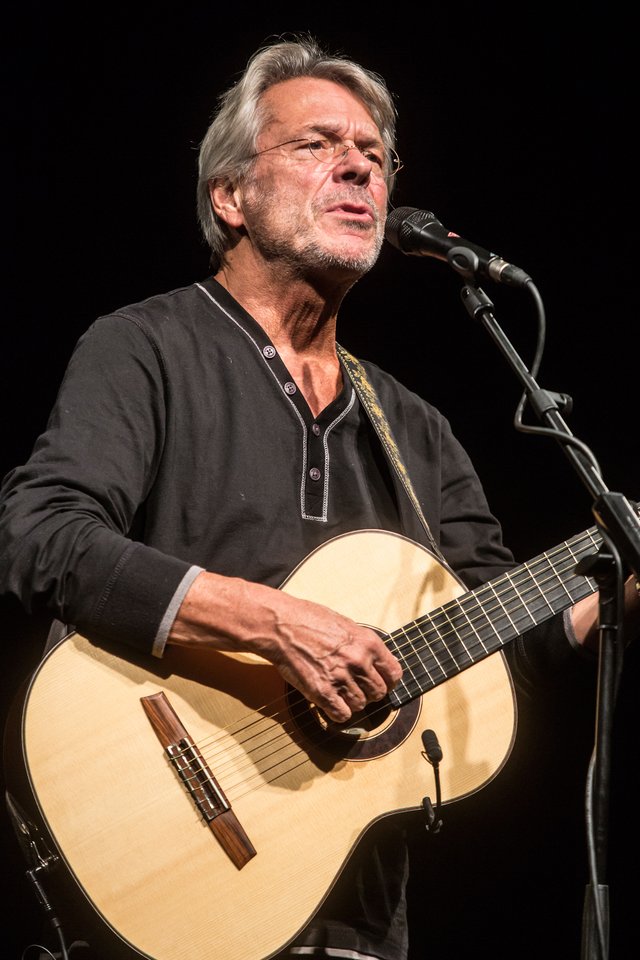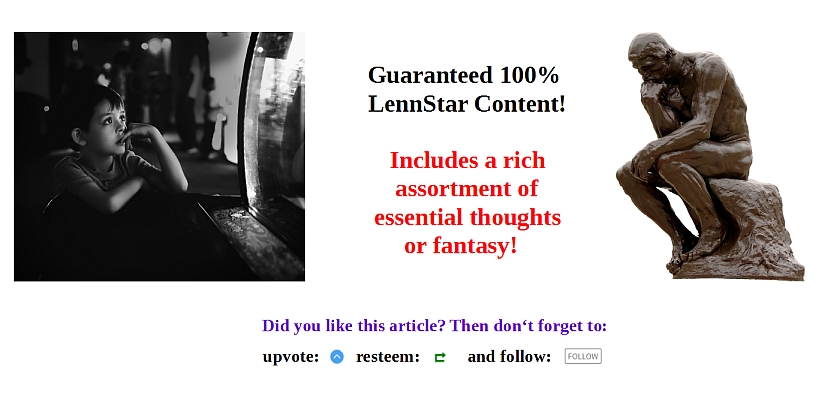The Hero of Songs: Reinhard Mey
I will try something tricky today: Talk in English about a German “Liedermacher” (singer-songwriter): Reinhard Mey and his German song texts.
In German a Liedermacher is someone who makes (machen) his own songs (Lieder) and of course sings them, generally alone with his instrument only.
I like the difference to the English term, because the Liedermacher – at least that is my feeling – is more than just someone who writes songs. It feels like an honorary title, a knight of songs, and Reinhard Mey might well be the reason for this feeling.

CC-by-sa Sven-Sebastian Sajak / Wikimedia
I am not a fan of music. I seldom listen to it. But there are some songs even I come back to again and again and, as for some of Mey’s songs, cry again and again.
Generally a Liedermacher writes lyrics that are very personal and often political. The tone can be very different.
Reinhard Mey started his career with funny, satirical songs like “Die heiße Schlacht am kalten Buffet” (The hot fight at the cold buffet), where he describes the eating habits of a certain kind of people, where the buffett-veterans have “scars on hand and face […] wherever the fork hits” and where the last line is that 10% of the proceedings go to “Bread for the World”.
But at first it looked like Reinhard Mey would end as a pub singer, until the song “Der Mörder ist immer der Gärtner” made him famous, and the title line “The murderer is always the Gardener” entered German as a winged word.
Other titles made fun of typical German things, like “Ein Antrag auf Erteilung eines Antragformulars”, which can be translated as “Application for granting an application for a permit”.
Being Father
After Mey married and got children, his songs turned naturally to his growing children, like “Aller guten Dinge sind drei” (Every good things are three), a light hearted song about the problems with his three young children (“the small girl finished all post by tearing it apart”).
But Mey also started to worry more about the future of the small, growing humans in his care. Back in 1988 he wrote a song that was the first I ever heard from him, because it was in my school book. “Das Meer” (The Sea) is – long before micro plastic became a word - about the mistreatment of the oceans, the huge amount of waste and our ignorance of the importance of this ecosystem.
The song ends with “The Sea will just shake us off from her shores. We need the sea, but the sea does not need us”. A line that has only gotten more true in the following years.
The “hammer” hitting you in the last line is something you can constantly find in his songs.
And while Mey was anti-war before, he got even louder about it when his children grew up, as can be found in songs like “I don’t give away my sons” (to the military).
The World, big and small
And as someone born in Berlin in 1942, it was of course impossible for him to not write a song about this divided city, simply named “My Berlin”.
I know there wasn't a single tree left on the road,
Ruins rose into the sky, black and burnt empty.
Now I'm standing here after so many years and just can't believe it,
The trees that stand here are almost as old as I am.
All my life I've lived in half the city,
What do I say now that you give me the other half?
Now I am standing here and my eyes are not fed up,
On these pictures -- freedom, finally freedom over my city!
(Translated with www.DeepL.com/Translator)
I leave it to you to interpret how much growing up there has formed Reinhard Mey.
Probably Mey’s best known (and most often covered) song is “Über den Wolken” (Over the clouds), a song about the freedom of flying.
In other songs Mey sings praises of certain jobs, like the one about the yourneyman “Three years and a day”
The title comes from the rules of their journey: three years and one day on the road, never coming closer to home than 30 miles. All possessions inside a scarf of 1 ell, the only material richness their gold earring – to pay, in case, for their funeral.
But he also makes fun of the more or less professional uses of tools, like in the song “Irgendein Depp mäht irgendwo immer” (Some idiot always mowes somewhere) or on the same melody “Some idiot always bores somewhere”.
“Holds the Black & Decker like a Smith & Wesson”
An ideal song to learn some not so common German words ;)
Another profession Mey honors are the doctors and pilots of the Emergency Helicopters. He wrote a song based on a real accident (ger).
The song starts with the daily waiting time of pilot and doctor, and then the call: A young child is trapped under ice!
The flying, the dangerous rescue and than the flight back to the hospital.
The shock that does not go away even after one thousand flights. The silence while the doctors in the hospital, with only a small chance, fight for the life of the child. Finally the telephone: The child will live.
And the last lines, the pilot writing in his logbook:
Reason: Rescue flight
special occurrences: None.
After the song, those lines don’t hit you like a hammer, but like a ten miles big asteroid.
History and death
One of the sons of Reinhard Mey died early after 5 years in coma. I think that has only reinforced his views and moved many of his songs even more towards history and death.
Two examples where Mey worked on the German history are “The Children of Izeu”, based on a group of orphan children that were killed by the Nazis.
Another one is “Die Eisenbahnballade” (The train balled), where, on the way to home, he starts dreaming about the history of the Steam Train age and what the trains have seen.
What all of Reinhard Mey’s songs have is the sharp observation of humans, vivid pictures and an incomparable way of showing feelings with seemingly single words or sentences.
In the funnier songs that are the scars of forks or the inability of getting romantic to the sound of a drill.
In the more sober songs it is the simmering rage about the indignity of what happens in the world, in a way that remembers me of Vimes in the Discworld novels.
Sometimes this rage is hidden behind funny music like in “Alles OK in Guantanamo Bay”.
At other times it is a rage that causes tears of pain, or is barely contained like in the last song I want to show you.
This song is written by Mey’s old friend and fellow Liedermacher Hannes Wader back in 1980, the video is from 2014. It is about how people get lied into wars and that this has to stop. Here is the English translation.
You can download all Mey’s (German) song texts here from his website (direct link) and translate with https://www.deepl.com/translator what you want.
Many of his songs are also made in French if that suits you more, but I can’t help you with that except telling you you should search for Frederik Mey then, as this is his “French” name.

And one more that was hard to put into the post, but is one you have to hear, it is about childhood memories and how things change: